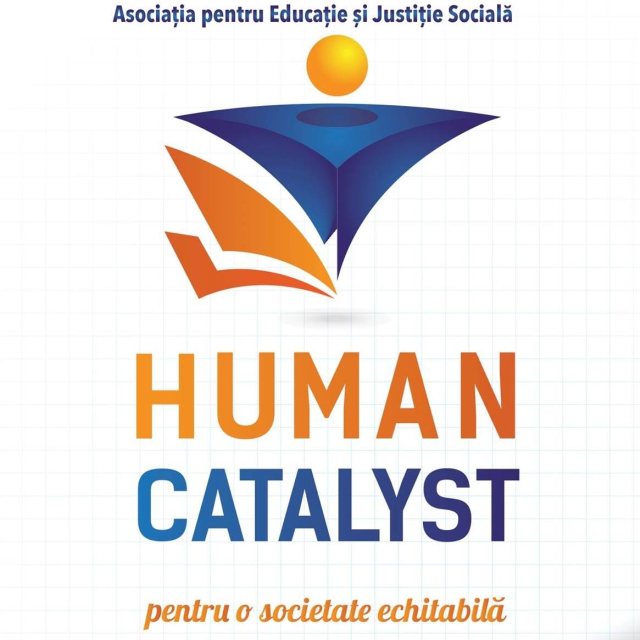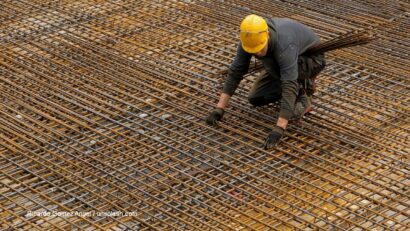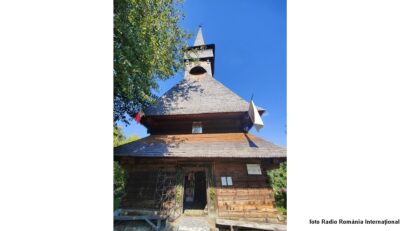Socio-educational inclusion in the Romanian education system
Along with and complementary to official data, various NGOs and experts have made their own assessments of the education system.

Christine Leșcu, 30.05.2018, 12:53
Along with and complementary to official data,
various NGOs and experts have made their own assessments of the education
system. One of them is Human Catalyst, an organisation whose president, Laura
Greta Marin, in cooperation with other experts, has created a specialised tool
to assess socio-educational risks that Romanian schools are exposed to. The
instrument is known as IRSE, the socio-educational risk index. So far, the
index has only been used to analyse primary and secondary schools, that is
children aged 6 to 14.
IRSE combines several data, including the school
dropout risk, the share of students who have been expelled or who have to
repeat a year. Secondly, IRSE takes into account the skills of the teaching
staff, which means the share of teachers with unsatisfactory skills and
training, and also the level of education of the students, as revealed by the
national examination that children have to sit in the 8th grade.
Also, the tool takes into consideration the social and economic development of
their respective localities, more specifically the degree of marginalisation,
in keeping with studies provided by the World Bank.
Here is Laura Greta Marin talking about the results
obtained for the 2016-2017 school year:
The IRSE index sets a scale of 1 to 10, whereby 10
is the maximum socio-educational risk score that a school can get. When we made
the classification, we identified four big categories of schools: schools with
a high level of performance, with scores of 0 to 1 (totalling 446 across the
country), average schools, with an index ranging from 1 to 3 (which account for
62% of the total of schools in Romania, namely approx 2,600 units),
disadvantaged schools, accounting for 26% of the total (115), and very
disadvantaged schools, accounting for 1% of the total (54 schools).
Based on information provided by IRSE, experts in
education were able to create a generic profile of the school at maximum risk
in Romania. Here is Laura Greta Marin again:
These are the schools in the category of the most
disadvantaged, as they were described by the World Bank. They are small
schools, with some 300 pupils. The share of ethnic Roma children is over 10%,
and in some schools most of the children belong to this ethnic category. The
school dropout rate exceeds 10%, and it can go up to as much as 70%. The share
of teachers who do not have the necessary skills, training and level of
performance can reach 5%. 30% of the pupils who finish the 8th grade
do not register for the national evaluation examination. Also, the average
grade of those that took part in the examination was below 5.50.
Assessing and comparing the data for 2015, 2016 and
2017, the experts with the Human Catalyst association found a particular
situation, which they called the Braila phenomenon, and is linked to the
national evaluation examination. In Romania, at the end of the 8th
grade, pupils are required to take a national evaluation examination, on the
basis of which they can enrol into a high school. Depending on the grades
obtained as a result of this examination, and also on the basis of the results
obtained in 8 years of study, they qualify for a certain high school. Also
depending on these results, an informal classification of schools is made. And
here is what the so-called Braila phenomenon is about, as Laura Greta Marin
has explained:
Last year, Braila ranked 2nd among the
counties with the highest averages following the national evaluation examination,
after Bucharest. However, Braila was also the county with the lowest rate of
participation in the examination, with some 40% unregistered pupils. So, in
order to understand the situation, we called school inspectors, school
principals, and also parents, who told us that a certain ‘procedure’ had been
used for some time now: children who do not perform well in school are advised,
forced or blackmailed not to register for the national examination, in order to
maintain the high score of the county. In fact, we have similar reports from
all over the country.
Children with poor school results or on the point of
being flunked are expected to get poor results in the national evaluation, the
more so as they first take a simulation test. That’s is why the school
management board tries to talk these pupils into not sitting the national
examination, says a mother of three from Bucharest. Her boys, triplets, had got
poor results in the math exam, being on point of being flunked. Instead of
being given the chance to get better marks, something different happened to the
boys, as their mother recalls:
They were getting bad marks and I was unaware of the
situation. I was amazed to find out. I knew about their poor school results,
but I didn’t know how bad they truly were, I mean they got 2 and 3, on a scale
from 1 to 10. Afterwards, the headmaster herself told me bluntly she would make
sure the math teacher flunked them so they wouldn’t be able to sit the national
examination. Their poor results would have lowered the overall average marks
obtained by her school, which was considered a good one. She used these words.
So, it seemed to me the headmaster put pressure on the math teacher.
Leaving aside the fact
that this type of pressure is not legal, the boys’ mother says it also affects
the children’s state of mind and self esteem:
They are left with the only option of taking the
exams in the autumn session. It is like they have already been defeated, like
embarking on their journey of life with severed wings. They had a sort of
nervous breakdown. They saw no point in studying any longer since they would be
flunked anyway.
Consequently, the boys’
mother filed a notification to the Education Minister two weeks ago. Also, at
the invitation of Human Catalyst, several NGOs have sent a petition to the
relevant authorities describing the Braila phenomenon. Two weeks after the
request was filed, the National Education Ministry invited the representatives
of the signatories for talks, the conclusions of which are to be made public.
Our editorial team has
also requested the Education Ministry to express its standpoint on the Braila
phenomenon. Here is what the line ministry wrote in a communiqué issued a week
ago: The National Education Ministry promotes and pursues an educational
policy aimed at ensuring equal chances to education, equal access to all forms
of education and at the same standards of quality, for all children. No
notifications of a concrete situation regarding the aforementioned phenomenon
has been brought to the attention of the National Education Ministry by parents
or pupils.






























